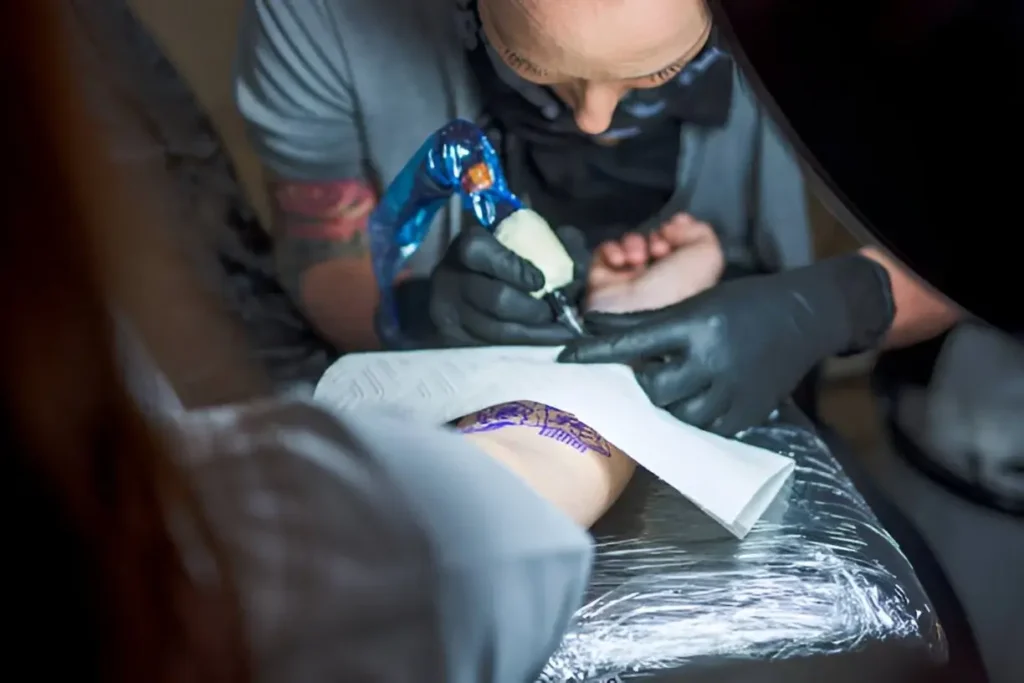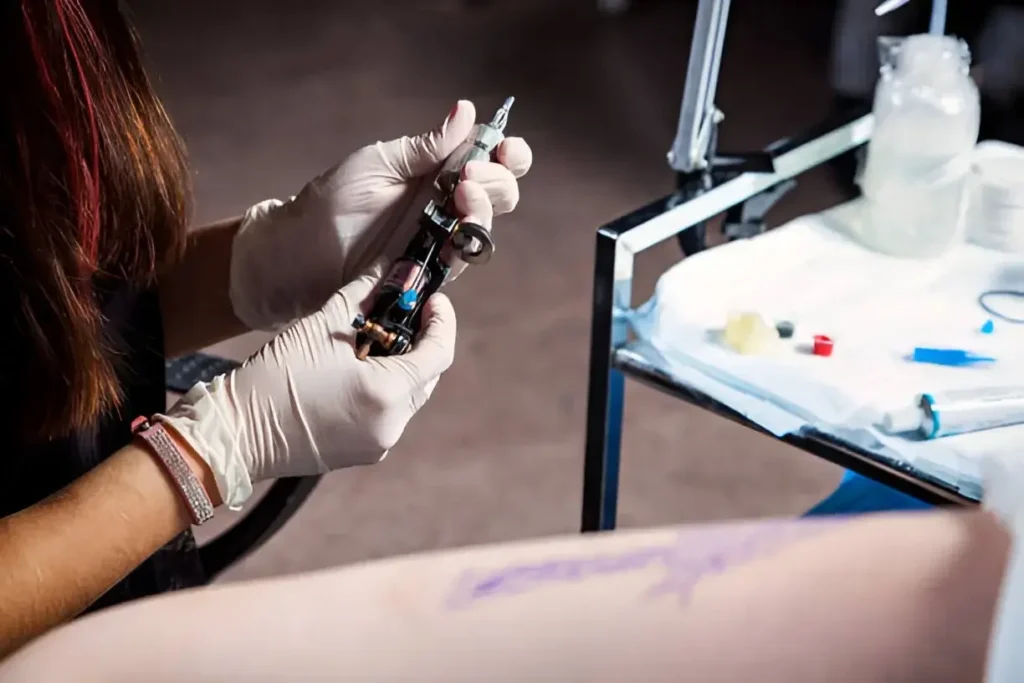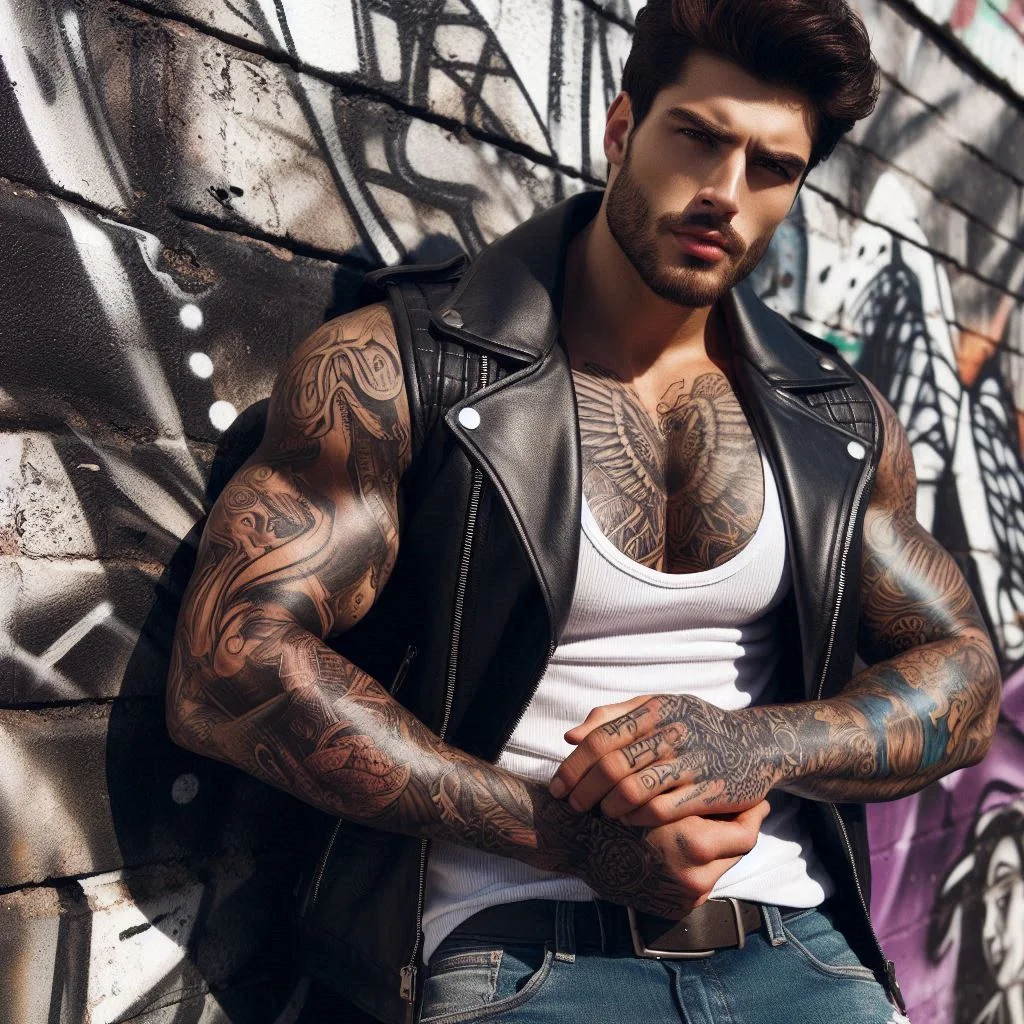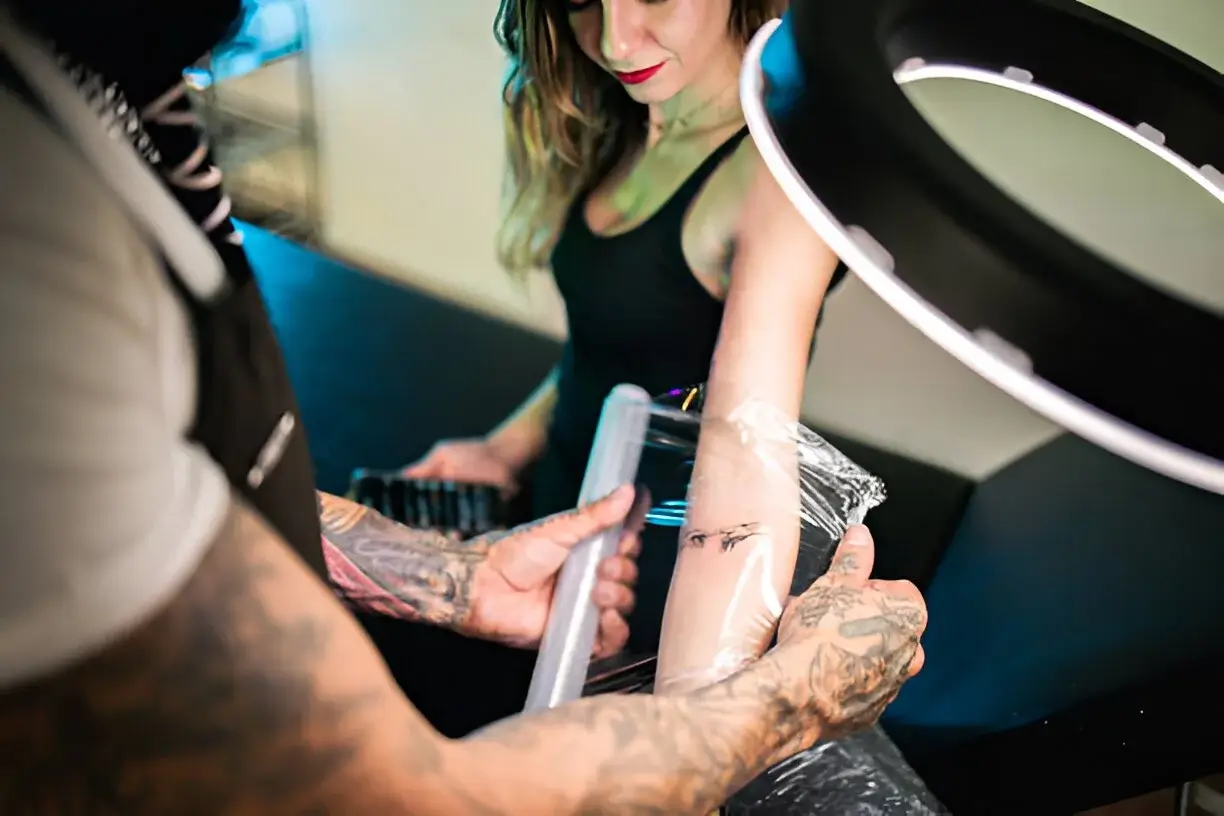Getting a tattoo is more than just an exciting and artistic experience. It is also about a commitment to proper tattoo aftercare to ensure your new ink heals perfectly and looks its best. After getting a tattoo, wrapping it immediately is an essential part of the aftercare process. But why are Tattoos Wrapped and why is this step so important? We will discuss tattoo wrapping’s various methods and reasons for doing so.
What is a Tattoo Wrap?
Tattoo wraps, also known as tattoo dressings or bandages, are protective films or coverings that are applied immediately after a freshly inked tattoo is finished. A tattoo wrap is used to stop dirt or bacteria from getting into the open wound or from causing friction to the wound. It is perfect for new getting and helps you to heal your tattoo quickly without any infection or wound.
What Happens During the Tattoo Process?
During a tattoo, an artist injects ink into the inner layer of your skin using a needle-based machine. A wound is created through this procedure, and like any wound, it needs to be treated appropriately to prevent infection. After the tattoo is completed, the experienced artist instantly wraps it and cleans the area to protect it because it is good for fresh ink.

The Purpose of Wrapping Tattoos: Benefits Of Tattoo Wraps
Critical First Hours
It’s important to follow the aftercare instructions as soon as you get your tattoo for the best results. The tattoo wrap protects your tattoo from damaging elements and contaminants, which is why it’s important to keep it clean. It is possible that some parts of a tattoo may be negatively affected if a tattoo does not get wrapped during its initial healing phase.
Protection from Infection
The new tattoos are open wounds. You need to wrap the new tattoo because it protects against dirt, bacteria and other contaminants that will cause infection. Protecting sensitive skin from harm is easier thanks to the sterile environment created by the wrapping.
Stop Damage
Fresh-inked tattoos are sensitive and can be easily damaged by friction from clothing or accidental bumps. Once you wrap it, it provides a protective barrier that reduces the risk of the tattoo getting scratched or rubbed, which can disrupt the ink and damage the design.
Reducing Fluid Build-Up
It is common for the skin to exude tattoo weeping, blood, and excess ink after getting a tattoo. Once it’s wrapped, your cloth does not get dirty and other surfaces are also safe from it. The area is also cleaned and the risk of infection is reduced.
Maintaining Moisture
It is imperative for healing to keep the tattoo moisturised. Once you wrap your tattoo it helps to retain moisture, which can stop the tattoo from scabbing too much and drying the skin. It also enhances the healing process, protects the quality of the tattoo and provides you with the perfect result.
Why Are Tattoos Wrapped in Different Materials?
Cling Film Tattoo Wrap
To wrap a tattoo instantly after a session cling film is commonly used for it. It is easily ready to use, flexible and makes an effective obstacle against the contaminants. Long-term use of it, however, can create a moist atmosphere that can encourage the growth of bacteria.
Plastic Wrap
Plastic wrap’s protective properties are similar to those of cling film. A tattoo artist normally uses it because it is a very simple method to apply it and offer a good seal. To ensure the tattoo heals properly, it should be replaced after a few hours with a more breathable material.
Gauze
The first step in enclosing a package is to wrap it in cling film, then wrap it in gauze as a second step. Protective barriers while still allowing air to circulate. It is especially useful for tattoos with large areas or those in sweat-prone areas since it absorbs too much moisture.
Tattoo-Specific Wraps
It is possible to purchase wraps specifically designed to be used as aftercare for tattoos from some manufacturers. Plastic wraps can provide the necessary protection while gauze wraps can provide the necessary ventilation, making these wraps ideal for healing wounds.
Wrapping Tattoo Machines
Tattoo machines are also wrapped during the tattooing process. This practice will help you to fulfill several purposes.

Hygiene
Tattoo wrapping machines help you to maintain a sterile atmosphere by stopping cross-contamination between clients. You need to make sure that the machine remains clean and minimizes the risk of skin infections.
Ease of Cleaning
When the machine is wrapped, it is easier to clean it after each use. Ink, blood, and other contaminants cannot enter the machine through the plastic barrier since they can be disposed of.
Professionalism
Clients benefit from the assurance that procedures are safe when wrapped machines are used by their artists, which demonstrates their commitment to hygiene and professionalism.
Final Thoughts
Wrapping tattoos is an important step in the tattoo aftercare process. It is important to protect the new tattoo from infection, damage, and excess moisture with cling film, plastic wrap, gauze, and specialized wraps. Tattoo artists and clients can both take advantage of this practice to ensure that tattoos heal properly and retain their vibrant appearance for years to come by understanding how it works.
Taking proper care of your tattoo, including using wraps appropriately, is essential to its longevity and quality. You need to maintain a clean and protected tattoo during the healing process by following the advice of your tattoo artist.


8 thoughts on “Why are Tattoos Wrapped? What is the Importance?”